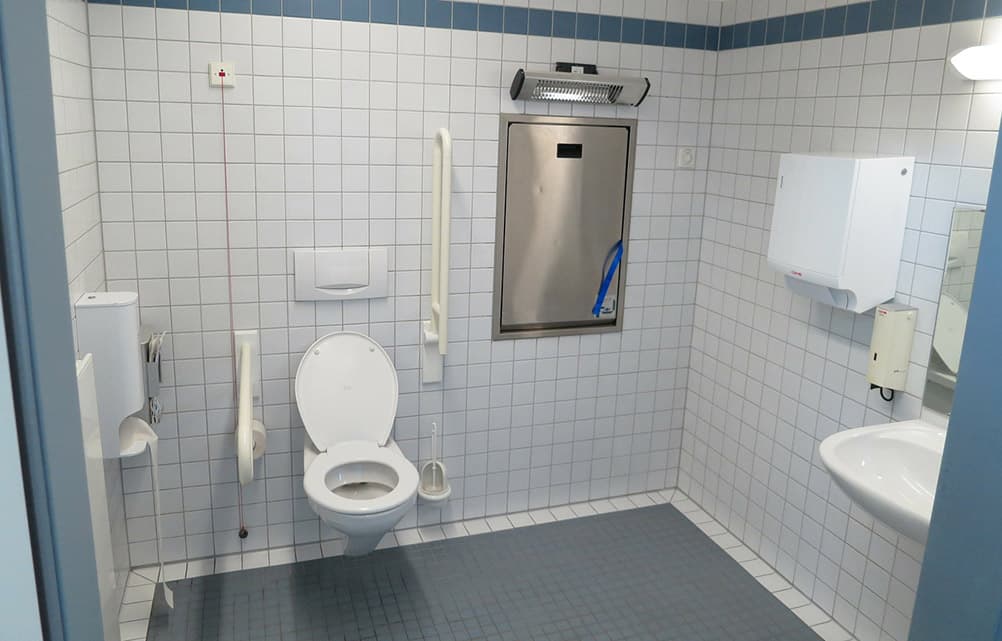Comment: Leonard Cheshire Chief Executive warns of no relief for disabled tourists

 With a recent study suggesting that more than seven in 10 disabled people have had visits to popular British tourist destinations spoiled by being unable to access toilets, Neil Heslop OBE, Chief Executive of Leonard Cheshire shares his concerns relating to the tourism industry and accessibility.
With a recent study suggesting that more than seven in 10 disabled people have had visits to popular British tourist destinations spoiled by being unable to access toilets, Neil Heslop OBE, Chief Executive of Leonard Cheshire shares his concerns relating to the tourism industry and accessibility.
By Neil Heslop OBE
As conversations turn from politics to summer holidays there will, for many, be an elephant in the room. Or, more precisely, a toilet. If you’re lucky.
Seldom talked about in relation to tourism in the mainstream media, the issue of accessible toilets is crucial for disabled people looking to travel.
Nearly three-quarters of disabled visitors have arrived at a British tourist attraction to find it had no toilets they could use at all, according to research run by Leonard Cheshire and Disability Horizons this month. In most cases, this was even after checking in advance to see if this fundamental provision was available.
Sadly, the promise of ‘accessible’ facilities is often an empty one.
A case in point was the experience of my colleague at Leonard Cheshire, Nick. He tested the claims of major tourist attractions, all which claimed they had accessible toilets. But he found that the designated accessible facilities at Tate Modern, for example, were not wide enough to manoeuvre his wheelchair or to move between the chair and the toilet. Put simply, there was no way that he could have safely gone to the toilet. Luckily, in this case, the problem was hypothetical.
In many more cases, numbers from our small study reveal a serious human toll. Hundreds of disabled people told us of dreadful experiences at British tourist attractions, which included crawling across floors to reach toilets, accidents, and, perhaps most shockingly, foregoing water and drinks so they wouldn’t need to visit a toilet in the first place.
Opting to go thirsty for hours because there’s no guarantee of getting to a toilet? It is unacceptable to put disabled people in this position, and bad business for the tourism industry.
This is, of course, a snapshot of the situation facing disabled travellers, but it’s a grim one. Aside from the impact this has on disabled people being able to live independent lives, there are implications for a tourism industry that has scant regard for the purple pound.
It’s time we faced up to the elephant in the room. We need to look at why so many disabled people – many of which may be on their first visit to the UK – are denied this basic human right.
Do we not want them to come back for a return visit?
https://thiis.co.uk/comment-leonard-cheshire-chief-executive-warns-of-no-relief-for-disabled-tourists/https://thiis.co.uk/wp-content/uploads/2019/08/disabled-toilet-WC.jpghttps://thiis.co.uk/wp-content/uploads/2019/08/disabled-toilet-WC-150x150.jpgAnalysis & InsightsNewsroomOpinions & CommentsThird Sectorchanging places,Chief Executive,disabled toilets,Leonard Cheshire,Neil Heslop OBE,tourismWith a recent study suggesting that more than seven in 10 disabled people have had visits to popular British tourist destinations spoiled by being unable to access toilets, Neil Heslop OBE, Chief Executive of Leonard Cheshire shares his concerns relating to the tourism industry and accessibility. By Neil Heslop OBE As...Calvin BarnettCalvin Barnettcalvin.barnett@bhta.comAuthorTHIIS Magazine

